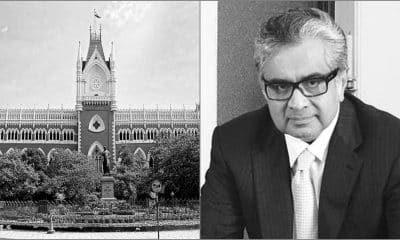News
High Court Steps In: A Call for Accountability in the Tragic Death of a Young Doctor
The brutal rape and murder of a young doctor at Kolkata’s RG Kar Medical College and Hospital has not only shaken the medical community but also led to a significant legal and administrative intervention. As the investigation unfolds, the focus has shifted from the crime itself to the questionable actions—or inactions—of those in positions of authority.
In an extraordinary move, the Calcutta High Court has ordered Dr. Sandip Ghosh, the former principal of RG Kar Medical College, to go on extended leave. This directive comes after Dr. Ghosh was accused of failing to ensure the safety of his staff and making comments that were perceived as victim-blaming. The court’s decision to remove him from his post, just a day after he resigned and was subsequently re-appointed at another prestigious institution, has highlighted the growing demand for accountability at all levels of administration.
A Leadership Under Scrutiny
Dr. Ghosh’s resignation, which he claimed was driven by “moral responsibility,” has been met with skepticism. The fact that he was immediately assigned to another leadership role at Calcutta Medical College has raised serious questions about the state’s handling of the situation. The High Court’s stern response underscores a broader issue within the system: the tendency to shield those in power, even when they fail to fulfill their duties.
The court did not mince words when it expressed its displeasure at the state’s actions. Chief Justice TS Sivagnanam pointed out the lack of empathy shown by Dr. Ghosh, emphasizing that as the head of the institution, he bore a significant responsibility for the safety and well-being of the staff. The court’s insistence that he should be on leave, rather than continuing in another administrative position, sends a clear message that such failures will not be tolerated.
A Family’s Quest for Justice
The parents of the deceased doctor have been at the forefront of the fight for justice, seeking a court-monitored probe into their daughter’s death. Their allegations of gross insensitivity on the part of the hospital and state authorities have added another layer of complexity to this case. The High Court’s hearing revealed disturbing details, such as the parents being kept in the dark about their daughter’s condition and not being allowed to see her body. These actions—or lack thereof—have only deepened the sense of betrayal felt by the family and the public.
The court’s decision to examine Dr. Ghosh’s resignation letter and demand the police’s case diary indicates a willingness to scrutinize every aspect of the case. The court’s question—“Why do you protect him?”—directed at the state’s lawyer, encapsulates the frustration and disbelief felt by many. It also reflects a broader concern about the culture of impunity that often surrounds those in power.
A Community in Mourning and Protest
The medical community’s reaction to this tragedy has been swift and vocal. Protests have erupted across the country, with doctors demanding safer working conditions and more accountability from their leaders. The High Court acknowledged these concerns, highlighting the impact this crime has had not only on the victim’s family but also on her colleagues. The ongoing strike by doctors, which has disrupted medical services nationwide, is a stark reminder of the deep-seated issues within the healthcare system.
The court’s call for a dialogue between the state and the protesting doctors is a crucial step towards addressing these concerns. The demand for basic safety measures, such as CCTV cameras on campus, reflects a broader need for systemic change. The state’s reluctance to implement such measures, despite the court’s clear directive, only adds to the growing mistrust between the government and the medical community.
A Call for Transparency and Action
As the investigation continues, the High Court has set clear expectations for transparency and swift action. The state’s assurances of a thorough investigation have been met with skepticism, particularly in light of the conflicting information that has emerged. The court’s decision to give the state police a deadline to conclude their inquiries, with the possibility of a CBI takeover, reflects the high stakes involved.
The public outcry over this case is not just about one tragic incident; it is about the need for a system that protects the vulnerable and holds those in power accountable. The court’s actions signal a commitment to justice, but they also highlight the challenges that lie ahead.
In the end, the tragic death of this young doctor has exposed deep flaws in the system. The High Court’s intervention is a crucial step towards ensuring that justice is served, but it is also a reminder of the need for continued vigilance and reform. As the case unfolds, it will be critical to see whether the promises of accountability and change are fulfilled, or whether this will be yet another example of justice delayed and denied.





































Pingback: Ram Rahim, Asaram Granted Parole Amid Outrage
Pingback: Dalit Girl Murder in Bihar: Six Accused, Political Outrage